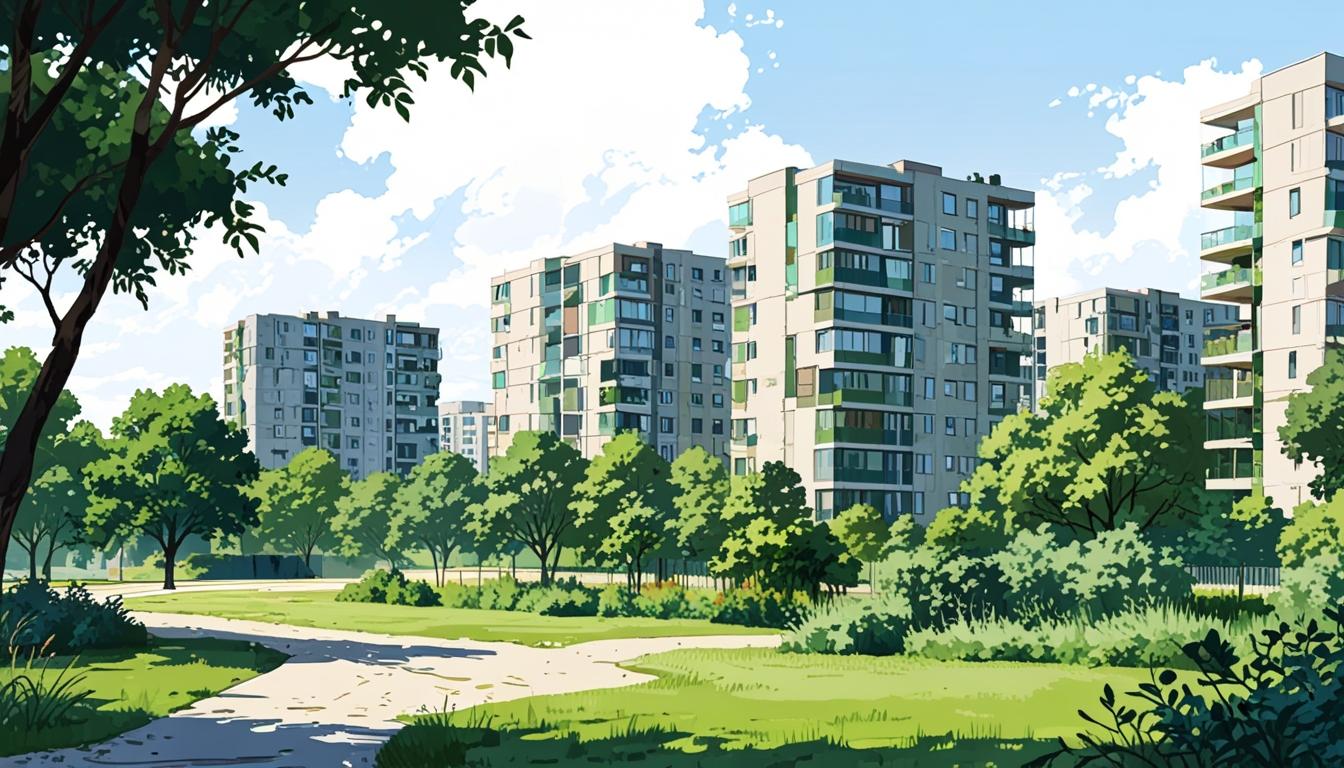Controversial plans for over 100 new homes in Barkingside, Redbridge, have received approval from the local council, despite significant opposition from residents. During a heated meeting, the planning committee sanctioned the construction of 114 new homes on private land that has remained dormant for a decade. This development includes 59 flats and 55 one-storey homes and is intended to address the pressing need for affordable housing in the area.
While the council insists that the “harm” of losing green space will be outweighed by the advantages of adding much-needed housing, the decision was met with just five votes in favour to four against, highlighting the contentious nature of the proposal. Local councillor Martin Sachs described the planning application as the most contentious he has encountered during his 20 years representing Barkingside. Speaking to the committee, he voiced strong opposition to the scheme, labelling it as “major overdevelopment”.
Discarding the call for deferral by councillor Kumud Joshi, who argued that residents had not been adequately consulted, the committee moved forward. Joshi expressed concerns about the potential loss of an attractive area teeming with trees and wildlife, which residents value deeply. The proposal attracted 113 objections, primarily related to privacy issues and the density of the housing design. Indeed, concerns were raised about the impact on the surrounding community, which many residents feel is already under strain from ongoing developments.
In terms of the housing strategy, the council has noted that there are approximately 8,000 families on the waiting list for homes in Redbridge. Councillor Syed Islam, supporting the project, underscored the urgency of addressing the housing crisis in London, stating, “Many people cannot afford housing, and it is important to prioritise housing solutions.” He added that developments like this one could provide tangible benefits to the local community.
Interestingly, this approval is not an isolated incident in Barkingside. Just days prior, similar plans for the Little Gearies estate, which involve developing 103 new flats, also faced an outpouring of public discontent, receiving 144 objections. Once again, the council stressed the need for housing amidst escalating demand and posed the proposal as a necessary step in addressing unmet housing targets. This pattern shines a light on a broader trend in Redbridge, where councils are increasingly finding themselves navigating the delicate balance between fulfilling housing needs and maintaining local green spaces.
While the developers have pledged £165,000 to the nearby Kenwood Gardens Health Centre, it remains to be seen how the local infrastructure will cope with the influx of new residents. The lack of financial contributions from developers for social housing projects is a topic of concern, particularly in light of the pressing infrastructure demands generated by new housing developments. Nevertheless, with work scheduled to begin on the flats in the next three years, the council continues to assert its commitment to tackling the housing crisis in London.
As urban development projects progress in the face of community opposition, they underscore the growing tension between the urgent need for housing and the preservation of community resources. The outcome in Barkingside may well reflect broader trends across London, where the delicate equilibrium between development and conservation is being continually tested.
Reference Map
- Paragraph 1: [1]
- Paragraph 2: [1]
- Paragraph 3: [1]
- Paragraph 4: [1]
- Paragraph 5: [1], [2], [3]
- Paragraph 6: [2], [3]
- Paragraph 7: [1], [2], [3]
Source: Noah Wire Services
